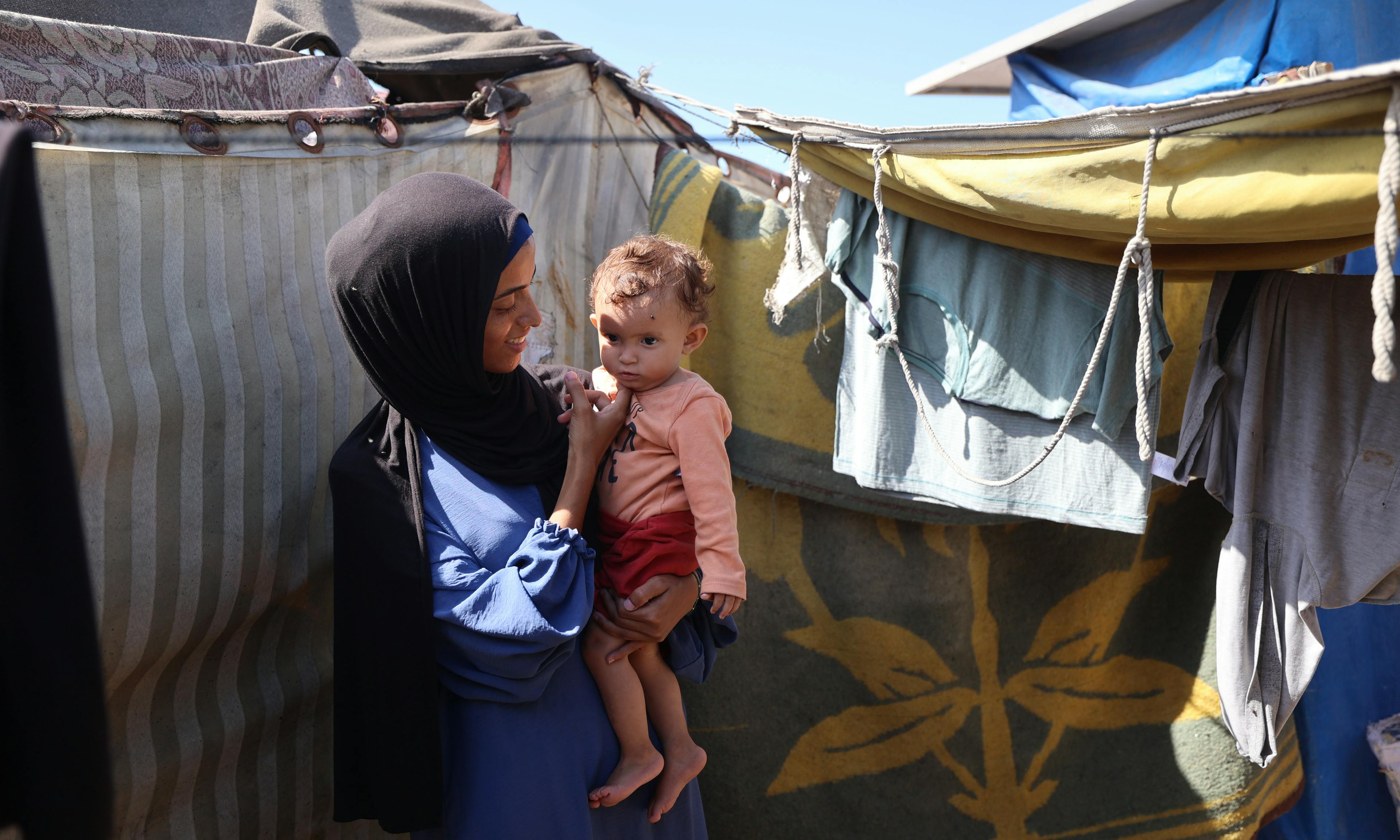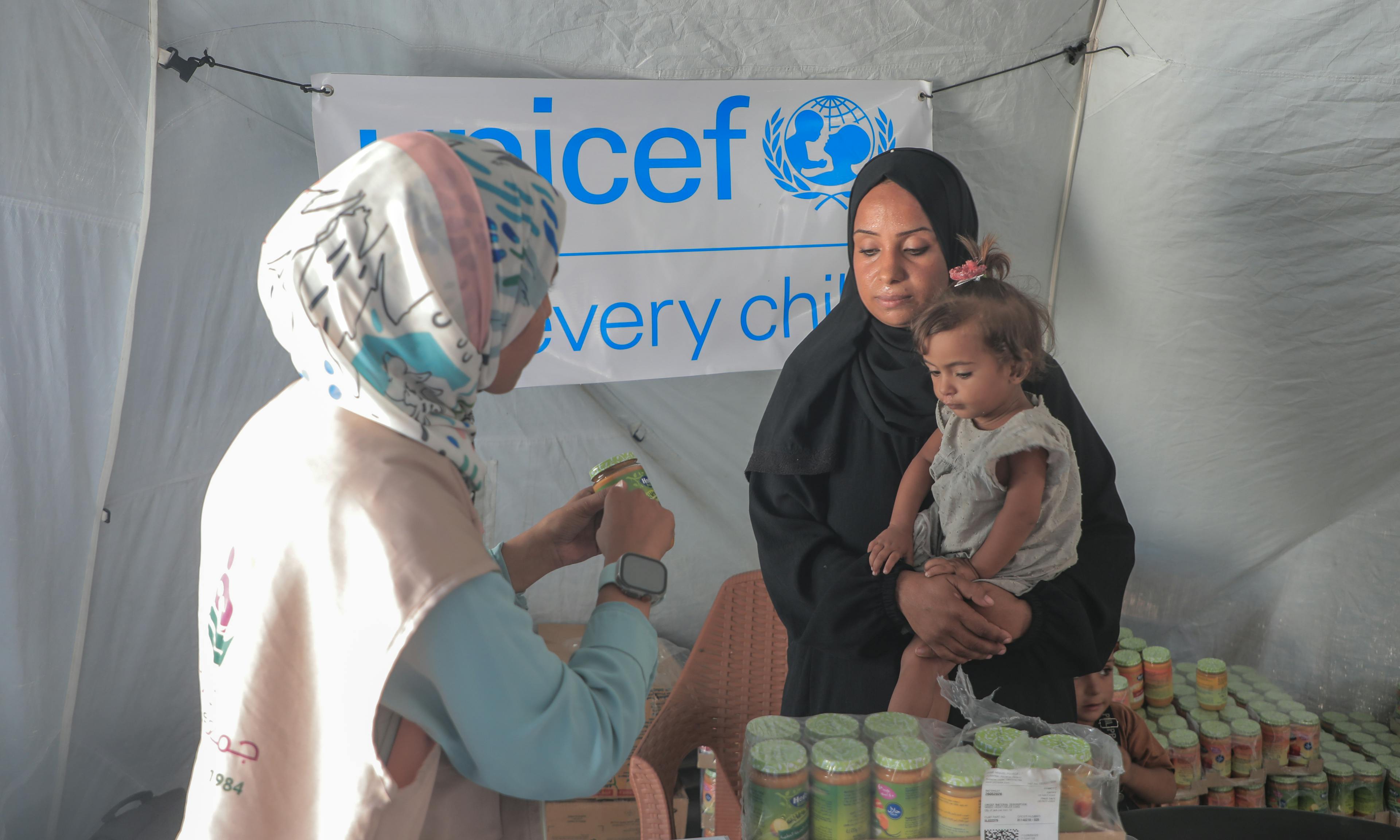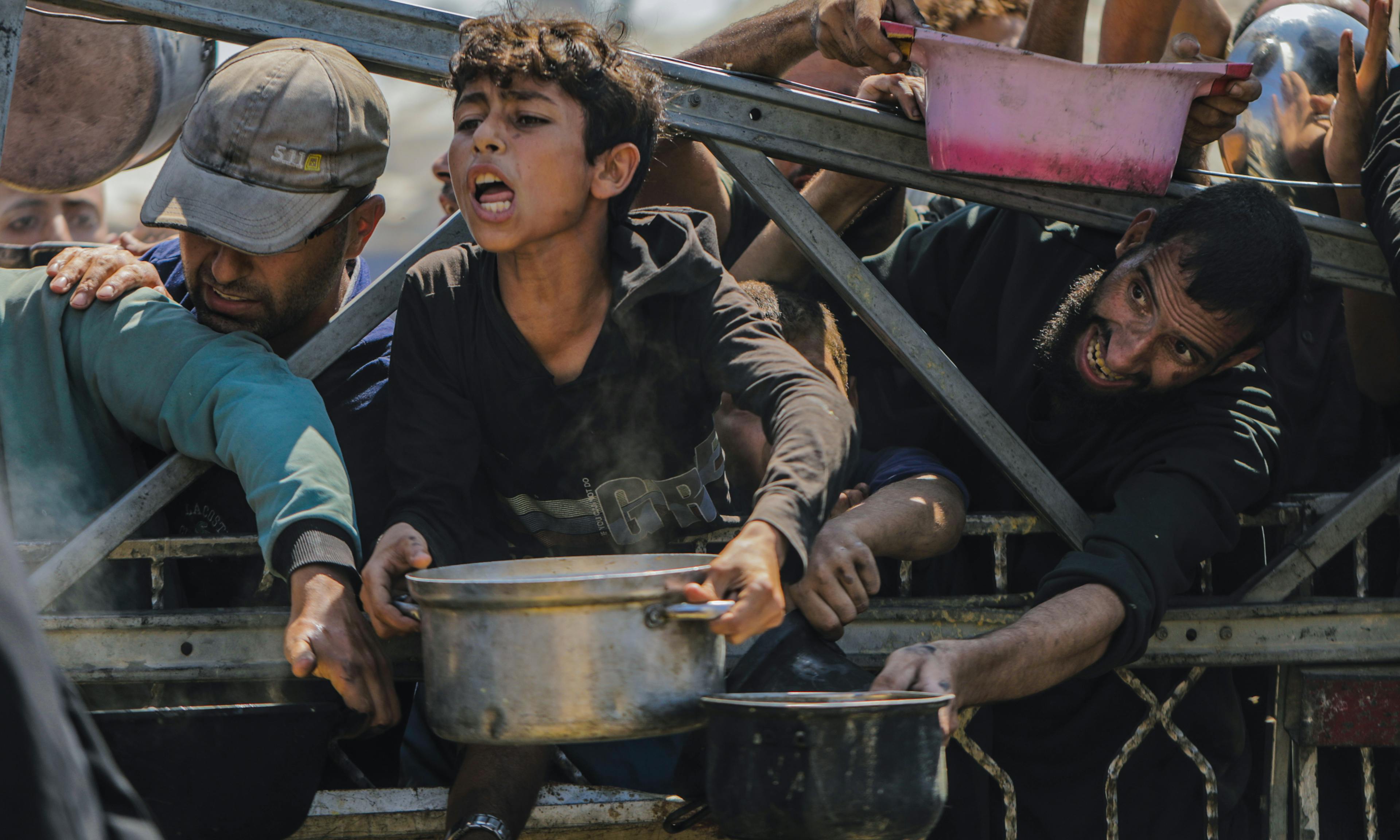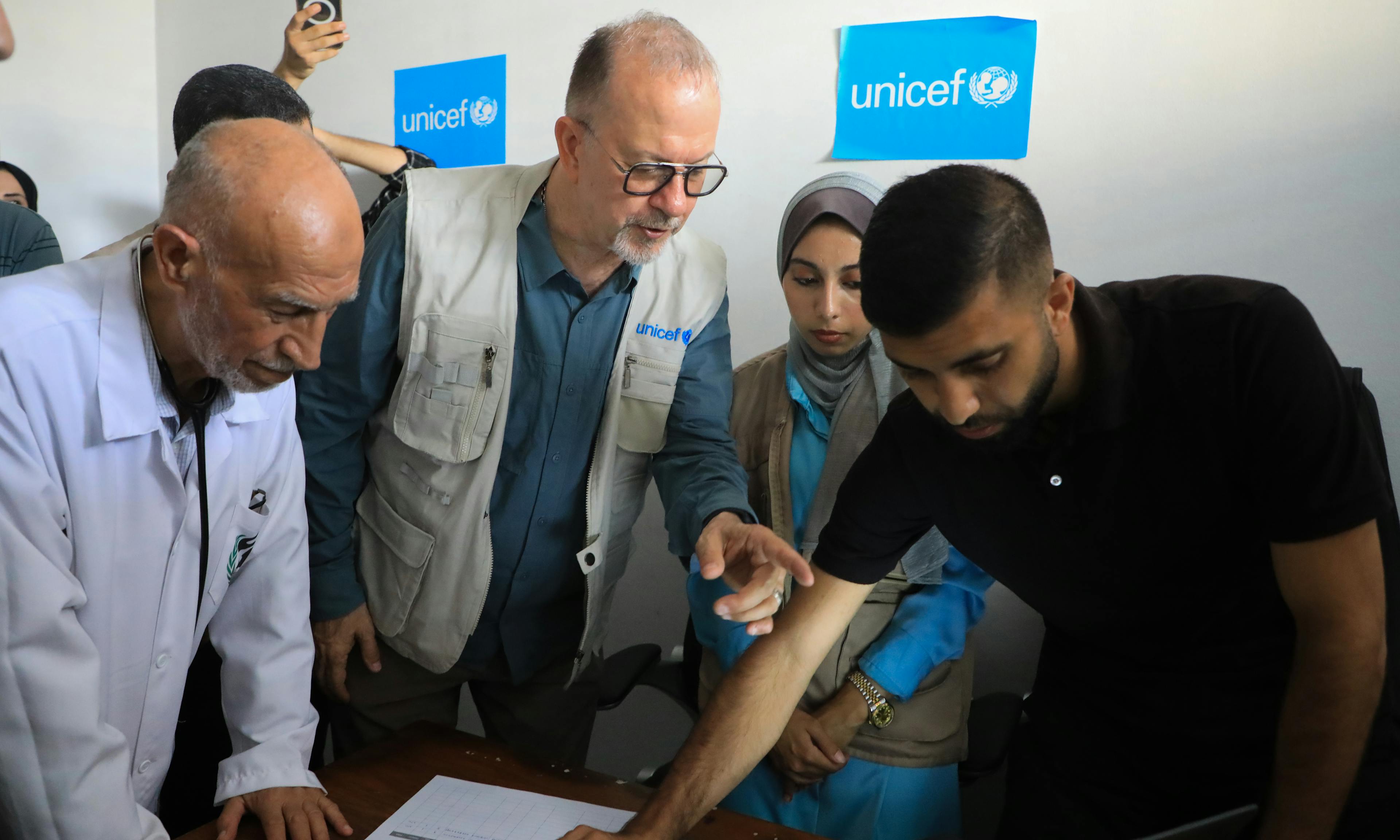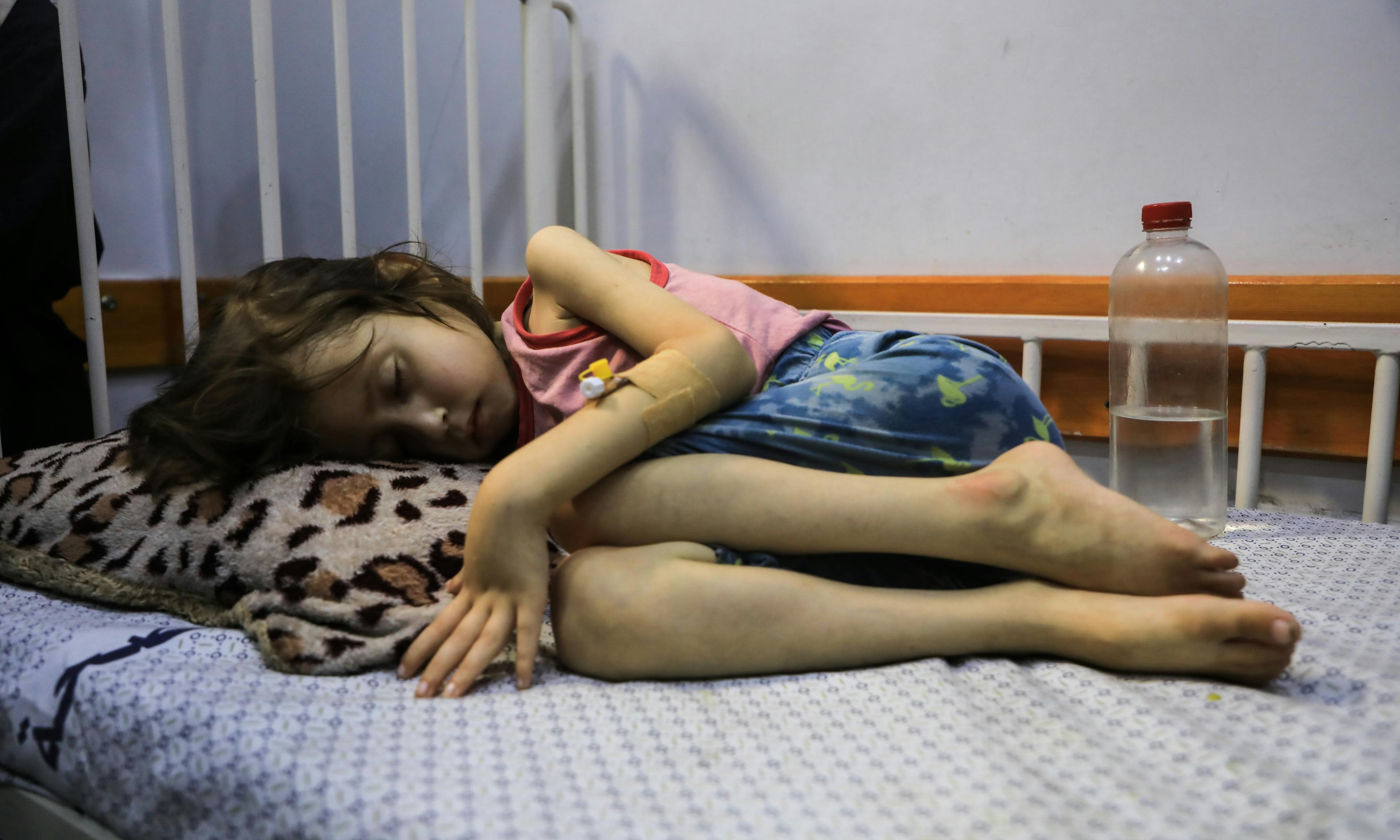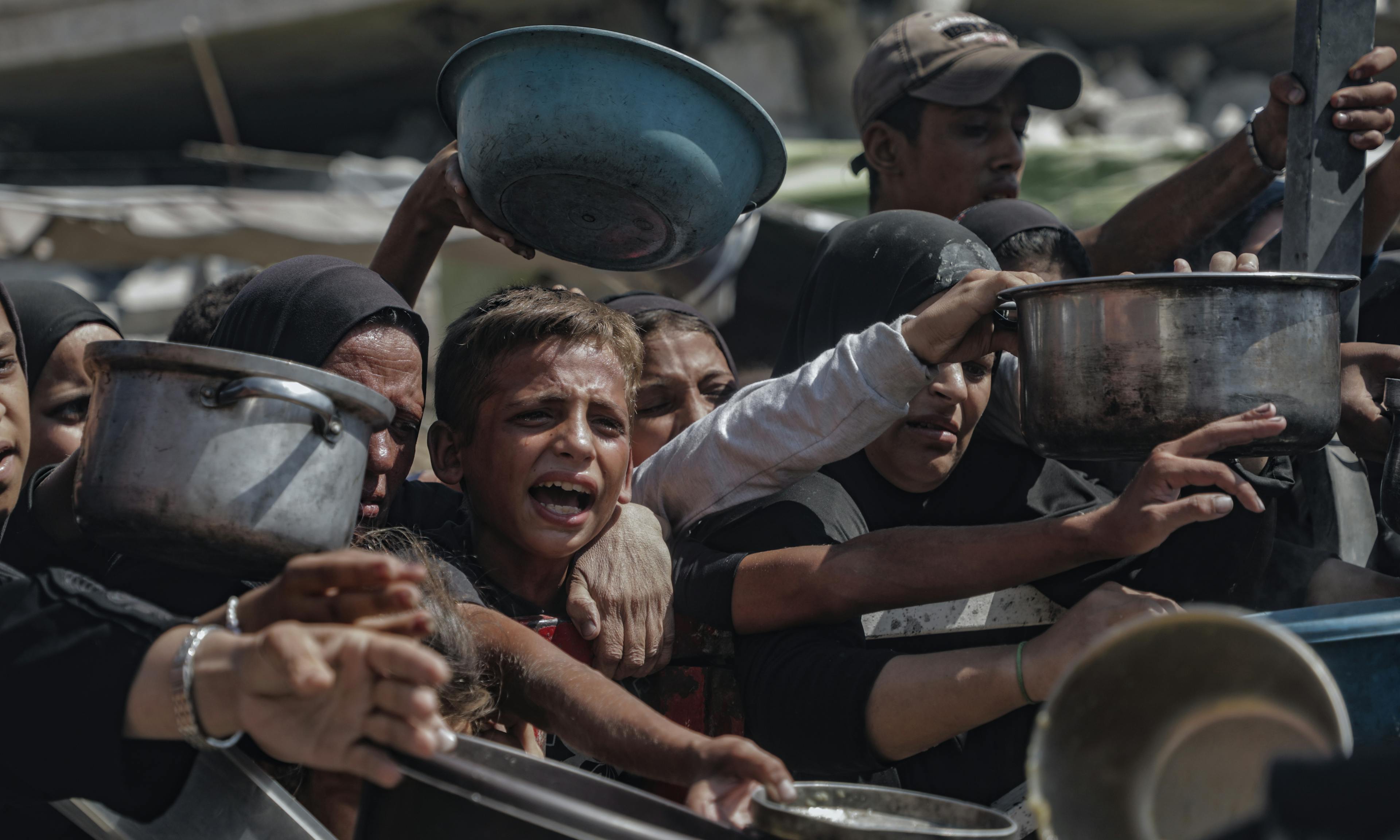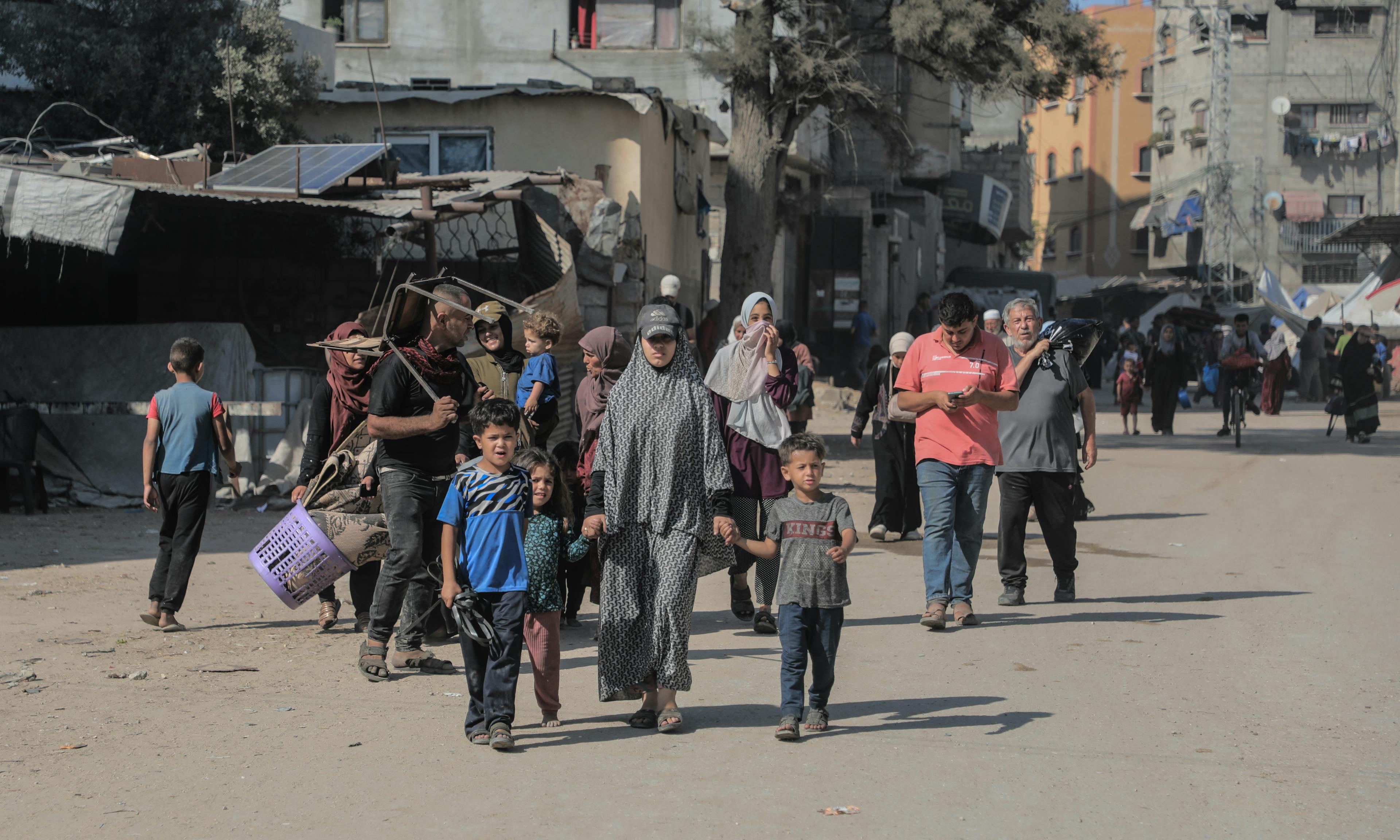
Children of Gaza Crisis
Home
Current Appeals
Children of Gaza Crisis
Ceasefire in Gaza brings a wave of hope.
For more than two years, children in Gaza have suffered relentless conflict, deprivation and displacement. With the announcement of a ceasefire, there's growing hope that it will bring about lasting peace for families who've suffered so much.
This ceasefire must allow unimpeded access, to enable a scaled-up response to what is one of the world's largest humanitarian crises.
The need in Gaza has never been greater.
In the first week of the ceasefire, (12-18 October) UNICEF collected 2,145 pallets of emergency supplies from the Gaza side of the crossings - an increase from the 10 weeks before the ceasefire, when UNICEF collected an average of 1,100 pallets per week. We've brought in nutrition supplies, medical supplies, hygiene kits, diapers, sanitary pads, family tents, high-performance tents, winter clothes, tarpaulins, and supplies for people with disabilities. However, much more aid is still needed.
In the words of UNICEF's Executive Director, Catherine Russell, “The war has already cost children in Gaza so much. They now deserve a durable and lasting peace so the long recovery process can begin.”
Support us to scale up aid, donate today.
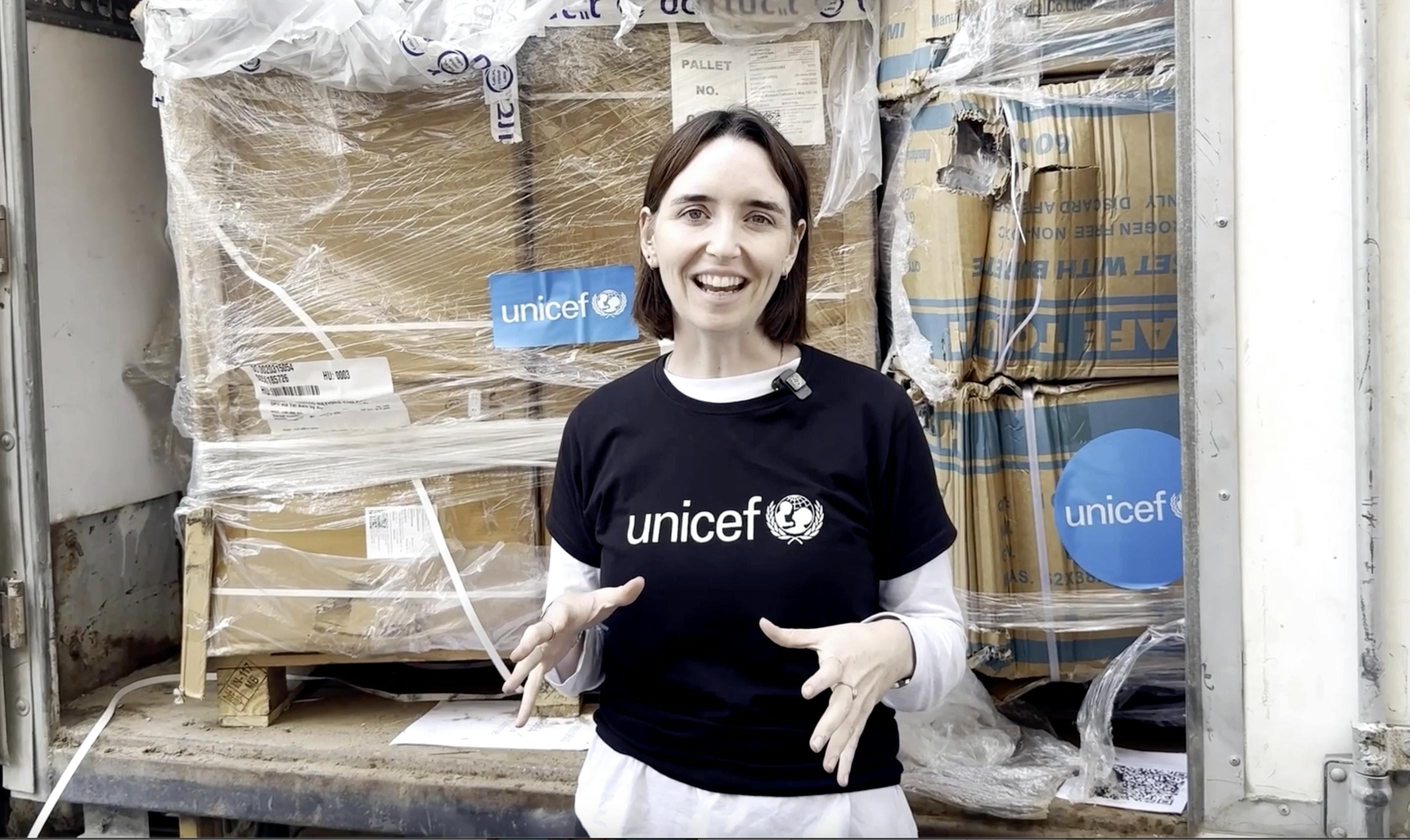
EVERY DAY WE CAN PROVIDE NUTRITION, CLEAN WATER, VACCINES, OR SHELTER IS ANOTHER DAY OF SURVIVAL FOR THE MOST VULNERABLE.
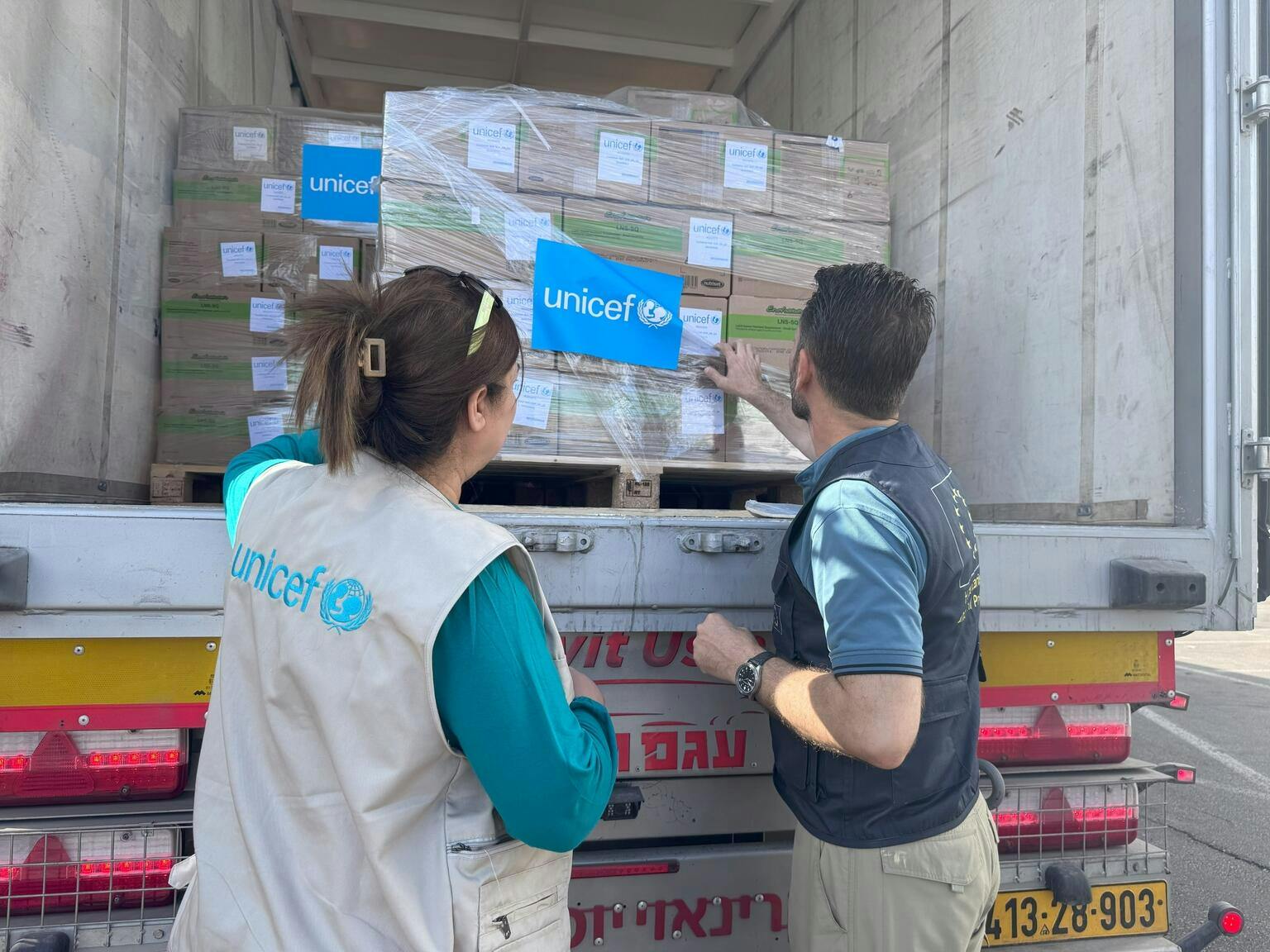
On 26th August 2025, UNICEF collected 75 pallets of life-saving nutrient supplements, including 4,452 boxes with 600 units in each. There are enough supplies here to support 89,500 malnourished children in Gaza for one month, after which more nutrition supplies will be urgently needed.
Is Aid Getting Into Gaza?
Despite the challenging circumstances the UNICEF team in Gaza continues to deliver critical services: treating acute malnutrition, restoring water infrastructure, supporting hospitals, reuniting separated children with their families, and vaccinating hundreds of thousands against deadly diseases.
Whilst humanitarian access is difficult, we can't just forget about children in Gaza.
Since the ceasefire earlier this year, nearly 1,000 trucks carrying UNICEF aid, including clean water, vaccines, therapeutic food and medical supplies have entered Gaza. In July and August, a total of 340 trucks laden with emergency aid, including nutritional support, medicines and WASH supplies, arrived in Gaza. This however, is just a fraction of what’s needed to support more than 2 million people and reverse the famine catastrophe that’s unfolding before the world’s eyes.
In the first week of the current ceasefire (12-18 October), 2,145 pallets of emergency supplies were collected - this is more than double the 1,100 pallets that were collected in the 10 weeks leading up to the ceasefire. However, we do need to scale up further, to reach more children and families.
Children continue to need our support, and with your help UNICEF is taking any and all opportunities to reach them.
Aid is reaching children in Gaza. But we need your continued support to help us reach more kids.
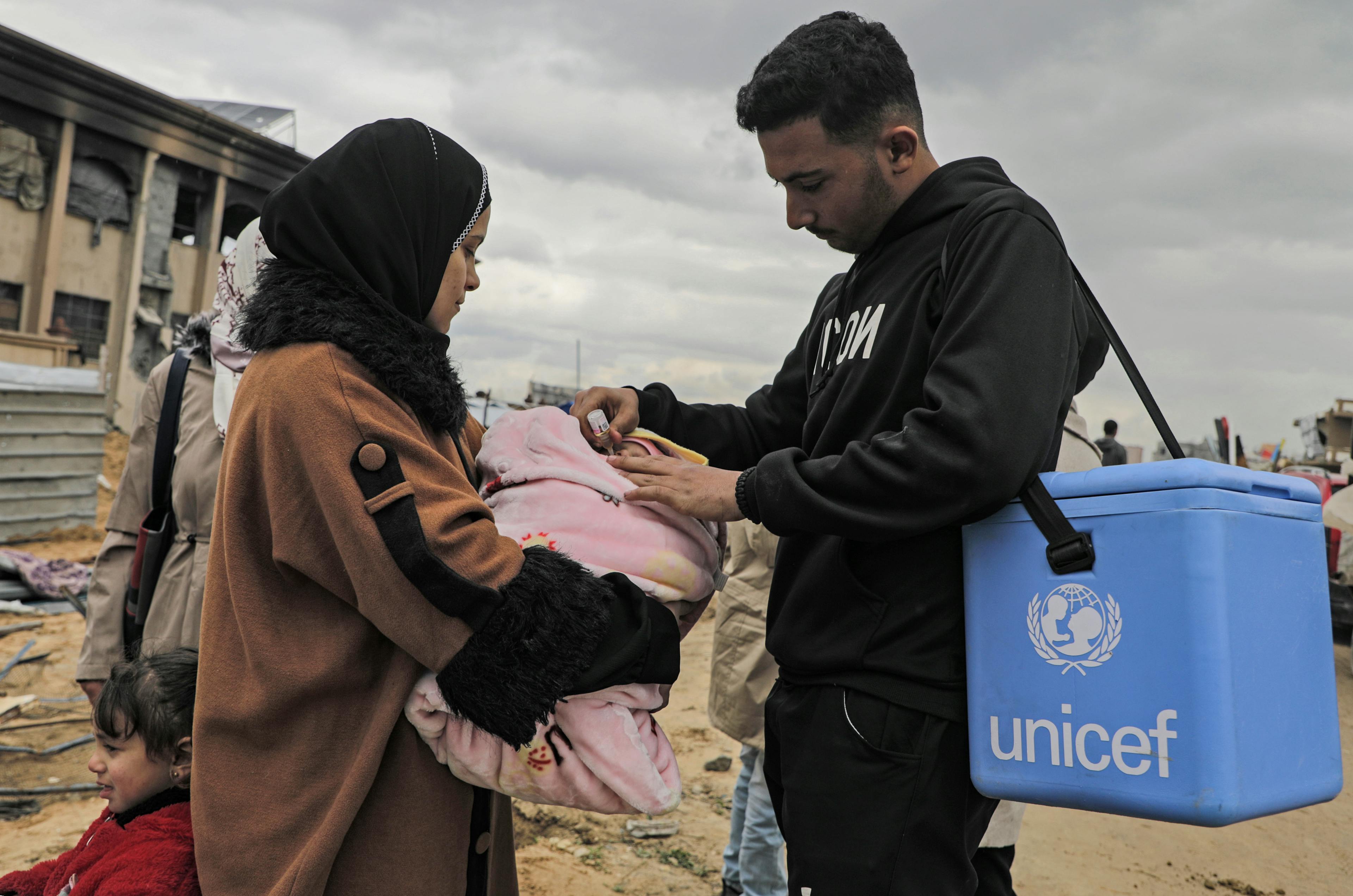
UNICEF is providing vaccines to protect children from polio after the disease was detected in Gaza for the first time in 25 years.
In the first half of 2025, UNICEF provided the following:
Nutrition
Clean water
Vaccines
Healthcare
Education
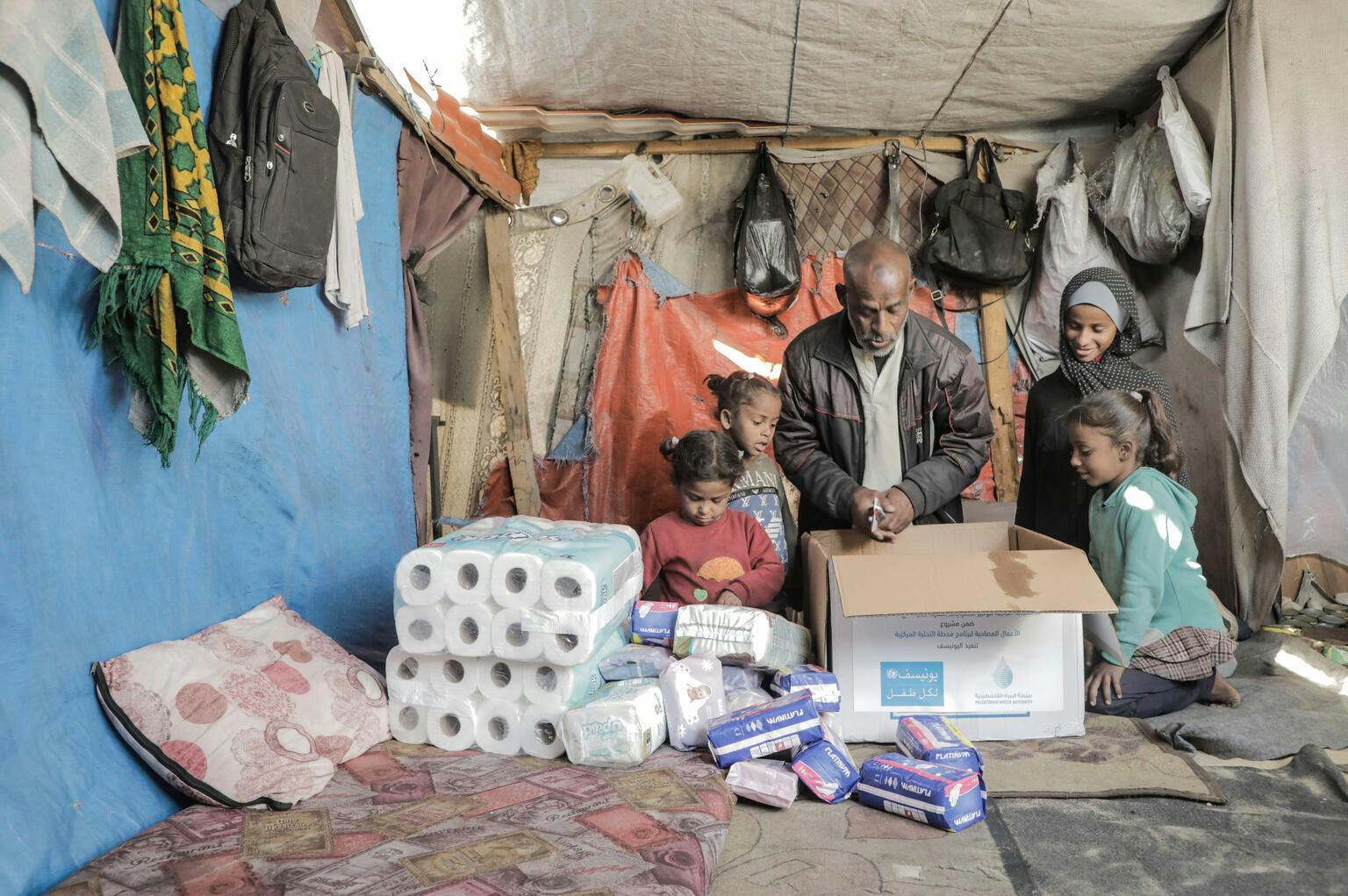
UNICEF has distributed hygiene kits to children and families in need, ensuring they have the necessary resources to maintain their health and dignity during the conflict.
Other ways you can donate.
You can donate over the phone by calling our friendly team on 0800 243 575.
You can donate direct to our bank account - please use account 01-0505-0463764-00 and the code 'gaza-ws'.
If you'd like to fundraise with your community to support our work in Gaza, you can start a Raisely or Givealittle fundraiser.
You can make a philanthropic donation - please visit our Philanthropy page for more details.
You can also help us spread awareness of the situation for kids in Gaza by sharing our appeal with your friends and family.
It's thanks to your ongoing support that we can keep delivering essential lifesaving aid to children in Gaza. From nutrition and medicine, to clean water, education and psychosocial care. No matter how long it takes or how the situation evolves.
CHILDREN IN GAZA ARE STILL HERE. UNICEF IS STILL HERE. TOGETHER WE CAN KEEP HOPE ALIVE.
FAQs
What is UNICEF’s role in the State of Palestine?
What is the current situation in Gaza?
How does UNICEF operate in conflict zones like Gaza?
How is UNICEF responding to the crisis in Gaza?
What challenges does UNICEF face in delivering aid?
How can individuals help?
Disclaimer:
In the event that funds raised exceed UNICEF's funding requirements, the appeal no longer needs funding, or the decision is made to close this appeal, your one-off or ongoing monthly donation will go to our Greatest Need Appeal. Where possible we will communicate this with you, however in some circumstances this might not be possible.
Your life-saving monthly donations will support this appeal for a period of twelve months. After that they will go into our Greatest Need Fund to save and protect kids worldwide.
UPDATED: 10th October, 2025
Donate to this appeal
SSL protected donation
